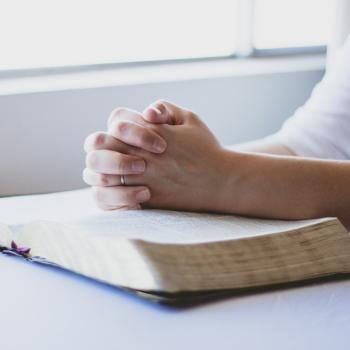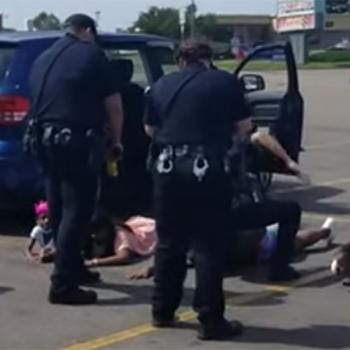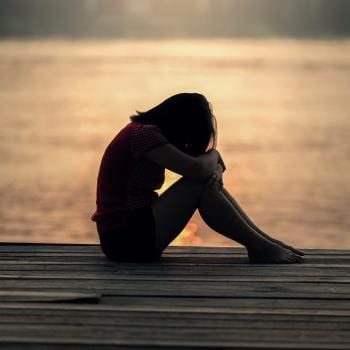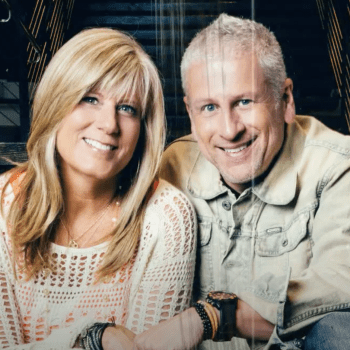Several of my commenters have pointed out that there’s a racial dimension important in understanding the Adrian Peterson situation. This isn’t about saying that what Peterson did in abusing his son was okay, but rather that it’s important to understand the context within which black parents make their disciplinary decisions. As a white woman, I don’t feel qualified to speak to this directly, but I want to point to several articles I’ve seen written on this dimension over the past few days. For each article I’m including a brief excerpt, along with a link to the full piece.
—————
The Racial Parenting Divide: What Adrian Peterson Reveals about Black vs. White Child-Rearing, by Brittney Cooper
In college, I once found myself on the D.C. metro with one of my favorite professors. As we were riding, a young white child began to climb on the seats and hang from the bars of the train. His mother never moved to restrain him. But I began to see the very familiar, strained looks of disdain and dismay on the countenances of the mostly black passengers. They exchanged eye contact with one another, dispositions tight with annoyance at the audacity of this white child, but mostly at the refusal of his mother to act as a disciplinarian. I, too, was appalled. I thought, if that were my child, I would snatch him down and tell him to sit his little behind in a seat immediately. My professor took the opportunity to teach: “Do you see how this child feels the prerogative to roam freely in this train, unhindered by rules or regulations or propriety?”
“Yes,” I nodded. “What kinds of messages do you think are being communicated to him right now about how he should move through the world?”
And I began to understand, quite starkly, in that moment, the freedom that white children have to see the world as a place that they can explore, a place in which they can sit, or stand, or climb at will. The world, they are learning, is theirs for the taking.
Then I thought about what it means to parent a black child, any black child, in similar circumstances. I think of the swiftness with which a black mother would have ushered her child into a seat, with firm looks and not a little a scolding, the implied if unspoken threat of either a grounding or a whupping, if her request were not immediately met with compliance. So much is wrapped up in that moment: a desire to demonstrate that one’s black child is well-behaved, non-threatening, well-trained. Disciplined.
—————
—————
Punishment or Child Abuse? by Michael Eric Dyson
The lash of the plantation overseer fell heavily on children to whip them into fear of white authority. Terror in the field often gave way to parents beating black children in the shack, or at times in the presence of the slave owner in forced cooperation to break a rebellious child’s spirit. Black parents beat their children to keep them from misbehaving in the eyes of whites who had the power to send black youth to their deaths for the slightest offense. Today, many black parents fear that a loose tongue or flash of temper could get their child killed by a trigger-happy cop. They would rather beat their offspring than bury them.
—————
—————
Adrian Peterson Is Not a Racial Symbol, by Khadijah Costley White
For some folks, the very act of questioning black parenting triggers concerns about racism. And for good reason. The absolute devastation of the black family during slavery shaped the very definition of freedom around the ability to raise one’s own children. But even after slavery ended, black parents continued to experience extensive governmental surveillance, critique, and intervention in their homes. Even today, a black woman is much more likely (than a white woman under the same conditions) to be investigated for child abuse and have her children removed. And her children are likely to stay in foster care for much longer.
Criticism of black fathers is an even touchier subject. Whether it’s the rhetoric of our own black-father-in-chief President Obama, infamous government studiesabout the failures of black mothers, or general commentary in the mainstream press, it seems like everyone thinks that fatherhood is the cure to all that ails black Americans. These folks argue that without men, children lack discipline, stability, and proper guidance. And, historically, many black men challenging racial constraints were taken from their homes through acts of white terrorism and murder. As a result, attacks on black fathers is not only seen as attack on black families, but also an assault on black progress. This is even more true when it comes to criticizing a professional athlete like Adrian Peterson, who so clearly embodies ideals of black masculinity, strength, and success.
As the comments of some of Peterson’s fellow players show, there are even those in the black community who make a larger cultural argument that the strict punishment of black children is a necessary evil.
—————
Feel free to share additional links or thoughts in the comments.















